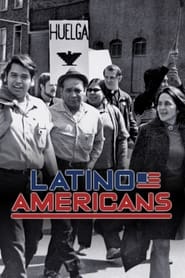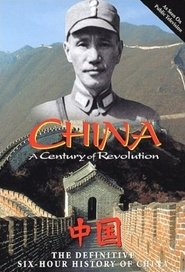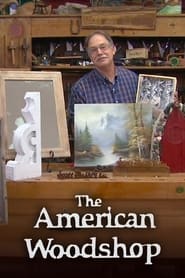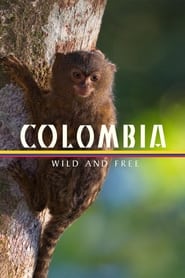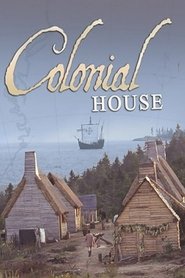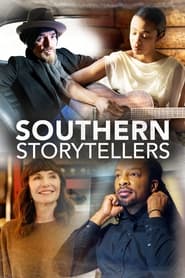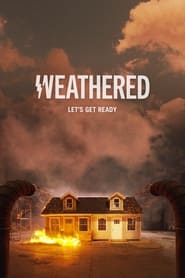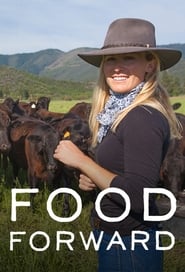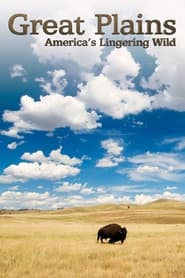Pbs TV Series - Page 32
-
Dynamics of Desegregation
1962
Dynamics of Desegregation, which aired in 1962 and 1963, was a 15-part intensive study of race relations in the United States. Harvard psychology professor Thomas F. Pettigrew hosted the series. It looks at the historical, political, psychological, personal and cultural aspects of segregation, with a particular emphasis on the South. -
Latino Americans
2013
star 7.5The first major documentary series for television to chronicle the rich and varied history and experiences of Latinos, who have helped shape North America over the last 500-plus years and have become, with more than 50 million people, the largest minority group in the U.S. -
The Migrant Kitchen
2016
The Migrant Kitchen
2016
Explore Los Angeles’ booming food scene through the eyes of a new generation of chefs whose cuisine is inspired by their immigrant experience. -
China: A Century of Revolution
1989
Chronicles China’s turbulent 20th century through rare archival footage and eyewitness accounts, tracing its most violent era marked by foreign invasions, civil war, and political upheaval. The documentary examines the decades-long conflict between Mao Zedong’s Communist forces and Chiang Kai-shek’s Nationalists (the latter supported by the U.S.), culminating in Mao’s establishment of the People’s Republic in 1949. It also explores Mao’s radical attempts to reshape China, followed by Deng Xiaoping’s transformative market reforms after Mao’s death, which steered the nation toward economic modernization. -
NEXT at the Kennedy Center
2022
A mix of artists across hip-hop, jazz, modern dance and more perform at The Kennedy Center. -
American Woodshop
0000
-
Colombia - Wild and Free
2022
star 10Journey to South America to explore the magnificent flora and fauna of Colombia, from the wild, largely deserted Pacific coast to the snow-covered volcanoes of the Andes, from the plains of the Orinoco region to the rainforests of the Amazon. -
Deep Jungle
0000
Deep Jungle
0000
Deep Jungle is a three-part miniseries that originally aired on PBS on consecutive Sundays from April 17 to May 1, 2005. The miniseries is a part of the twenty-third season of the natural history documentary series Nature. Deep Jungle follows scientists and filmmakers as they use the latest technology to explore the jungles of fourteen countries around the world. -
Check, Please! South Florida
0000
A weekly, half-hour series that gives amateur foodies the opportunity to review, rate and celebrate their favorite local restaurants as three guests try the others' favorite restaurants and dish. -
Check, Please!
2001
Check, Please!
2001
Check, Please! is a popular restaurant review program that first aired on Chicago's PBS member station WTTW in 2001. The show's popularity inspired spin-offs in several other markets. A San Francisco version of the show, Check, Please! Bay Area, began its first season in 2005, airing on KQED. A Miami version for WPBT, Check, Please! South Florida, debuted in January 2008. Check, Please! Kansas City then began airing on KCPT in 2009, and Check, Please! Arizona on Phoenix's KAET made its debut in 2010. A Seattle version, Check, Please! Northwest, began airing on KCTS in 2012. The format of the show is simple: three people sit down with a host to discuss three local eating establishments, one favorite chosen by each guest. Before the program is taped, each person chooses a favorite restaurant, and everyone in the group is required to visit each person's selection. Afterwards, everyone describes their eating experiences. Although many participants select trendy, upscale restaurants, just about any eating establishment -
New Orleans Cooking With Kevin Belton
2016
Chef Kevin Belton takes viewers on a culinary tour of New Orleans in this cooking series from PBS affiliate WYES. The self-trained chef lets viewers in on family recipes he learned from his mother and grandmother while growing up in New Orleans. From seafood gumbo to shrimp remoulade to pecan-crusted redfish to Cajun turkey, the series explores the diverse mix of cultures that contribute to the food of the Big Easy. Aside from appearing as chef and guest on numerous television shows, Belton has also been an instructor at the New Orleans School of Cooking for the past two decades. -
Colonial House
2004
Colonial House
2004
Modern day participants attempt a recreation of daily life as it would have been in Plymouth Colony in 1628. -
Southern Storytellers
2023
Celebrate Southern identity through the eyes of contemporary creators of literature, music, film and TV -
French in Action
0000
star 10French in Action is a French language course, developed by Professor Pierre Capretz of Yale University. The course includes workbooks, textbooks, and a 52-episode television series. The television series — the best-known aspect of the course — was produced in 1987 by WGBH, Yale University, and Wellesley College, and funded by Annenberg/CPB, and since then, has been aired frequently on PBS in the United States, developing a cult following for its romantic comedy segments interspersed among grammar lessons. In 2010, Yale University hosted a 25th anniversary reunion in celebration of the programme's success. -
Citizen Hearst: An American Experience Special
2021
William Randolph Hearst's media empire in the 1930s included 28 newspapers, a movie studio, a syndicated wire service, radio stations, and 13 magazines. -
Weathered
2020
Weathered
2020
From wildfires to hurricanes to tornadoes, Weathered will teach you about natural disasters from the people who have survived them, as well as what you can do to prepare. -
Food Forward
2012
Food Forward
2012
How did something so fundamental as food, go so fundamentally wrong? Instead of nourishing us, what we eat and the way we produce it threaten the air we breathe, the water we drink and the dirt under our feet. And yet, too much 'food' television focuses on celebrity chefs and cooking competitions and not enough on where our food comes from and the impact it has on our planet, our country, our bodies, and our souls. Food Forward opens the door into a new world of possibility, where pioneers and visionaries are creating viable alternatives to the pressing social and environmental impacts of our industrial food system. Across the country, a vanguard of food rebels--farmers, chefs, fishermen, teachers, scientists, and entrepreneurs--are creating inspired, but practical solutions that are nourishing us and the planet. These are stories America needs to hear. This is Food Forward. -
Great Plains: America's Lingering Wild
2013
Nature photographer Michael Forsberg examines the remaining “wildness” in the Great Plains of North America. Featuring stunning imagery, the program is based on Forsberg’s book of the same name. Less than 200 years ago, the Great Plains was one of the greatest grassland ecosystems on Earth, stretching nearly a million square miles down the heart of the continent. The prairie was a place of constant motion, shaped by an unforgiving cycle of the seasons. Huge numbers of bison, elk, pronghorn, deer, prairie dogs, prairie wolves and even grizzlies were common. There were massive migrations of birds and fish. But as America grew, and the land was settled and tamed, the wildness began disappearing. Today the Great Plains is a fragile and threatened ecosystem, home to a variety of wildlife and habitats. In this documentary, Forsberg examines the wildlife and native landscapes that remain, exploring the current condition of the plains.


